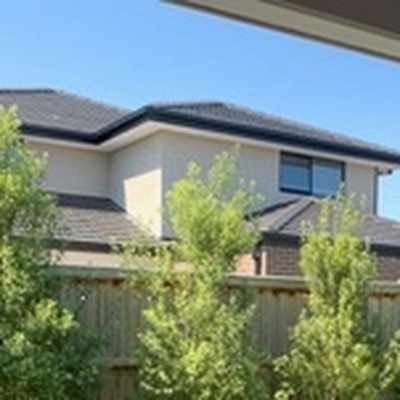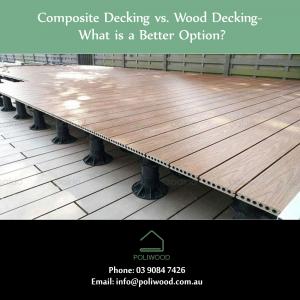Composite Decking vs. Wood Decking- What is a Better Option?
Body
Your home is incomplete without a beautiful terrace or garden. Apart from planting flowers, there is one more thing that can effortlessly enhance the appearance of your garden is decking. It modernizes the overall appearance of the garden and makes it feel like a comfortable place to throw parties. Nowadays, it is a common choice among homeowners. Not only hardwood but also composite materials are used to prepare deck planks. If you have set your mind to install decking, it is important to understand the difference between the two types of material.
Composite Decking
Composite decking was first introduced in 1980. It is made of wood fibers encased in plastic. The composition of the decking material has been improved over years for appearance, texture, and durability. Modern composite decking is sturdy and durable.
Wood Decking
Wood decking is the oldest decking material and has always been a pride of urban elites. There are several different types of wood varieties are available for decking and fencing. Some common varieties include redwood, cedar, and pressure-treated pine lumber. Some other wood varieties include tigerwood and mahogany.
Composite Decking vs. Wood Decking
Nowadays, homeowners have two choices to consider when it comes to installing decking in their backyard or terrace. One of the best alternatives to wood decking is composite decking because of several reasons. In other words, an alternative to decking is composite decks.
Composite decking is a durable option than wood decking because of its tough and non-porous surface. Its non-porous quality prevents the deck from getting drenched. Wood decks get wet and take a lot of time to get dry. It affects the durability of the wood deck. A composite deck can last up to 20 years.
Composite decking doesn’t need staining and sealing throughout its lifetime. Hence, it needs negligible maintenance. At the time of manufacturing, manufacturers add colors and textures to the planks. They become permanent and don’t damage from heat and other climatic changes. Wood decks absorb water. They need staining and painting at regular intervals. Lower maintenance can lead to warping, splintering, rotting, and cracking on wood decks. Composite decks only need sweeping or washing occasionally to restore their shine and texture.
Unlike wood decks, composite decks are not prone to damage from termites and other wood-destroying insects. Protection from termites increases the lifespan of composite decks.
Wood decking doesn’t become very hot during summers. It is an advantage of wood decks over composite decks. However, if you are living in a hot region, consider a light-shade composite deck to keep your surroundings cool and comfortable.
Composite decks are available in a range of shades and textures, but wood decks have limited options. Moreover, if you are looking for wood-like finishing on composite decking, high-end composite decks are available to imitate the finishing of wood.
Bottom Line
Overall, composite decking is the best wood-alternative decking.







Comments